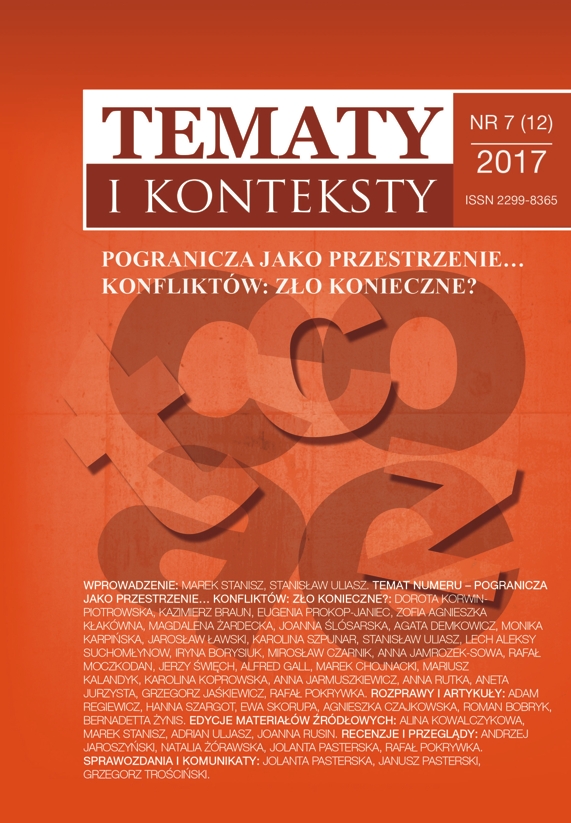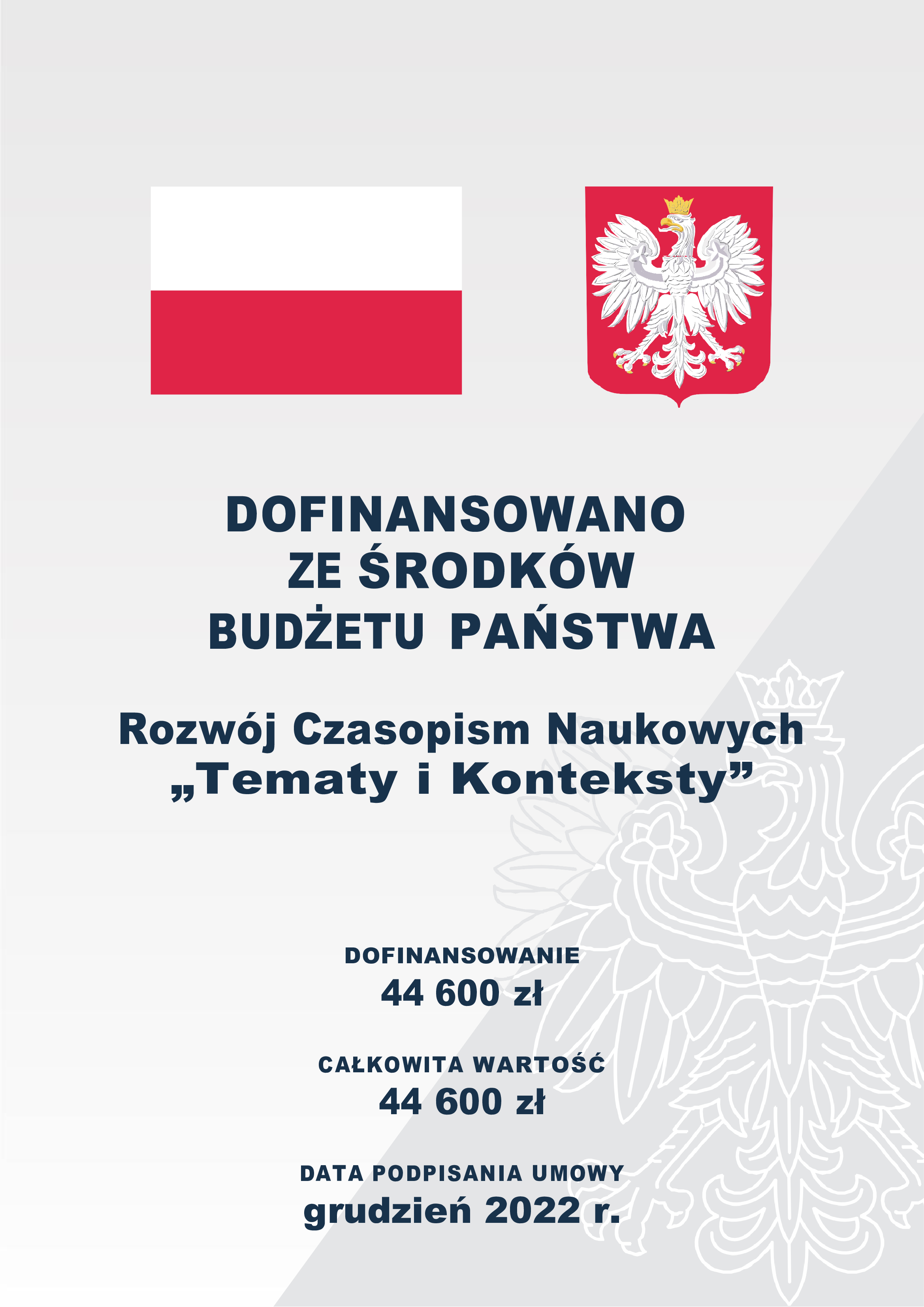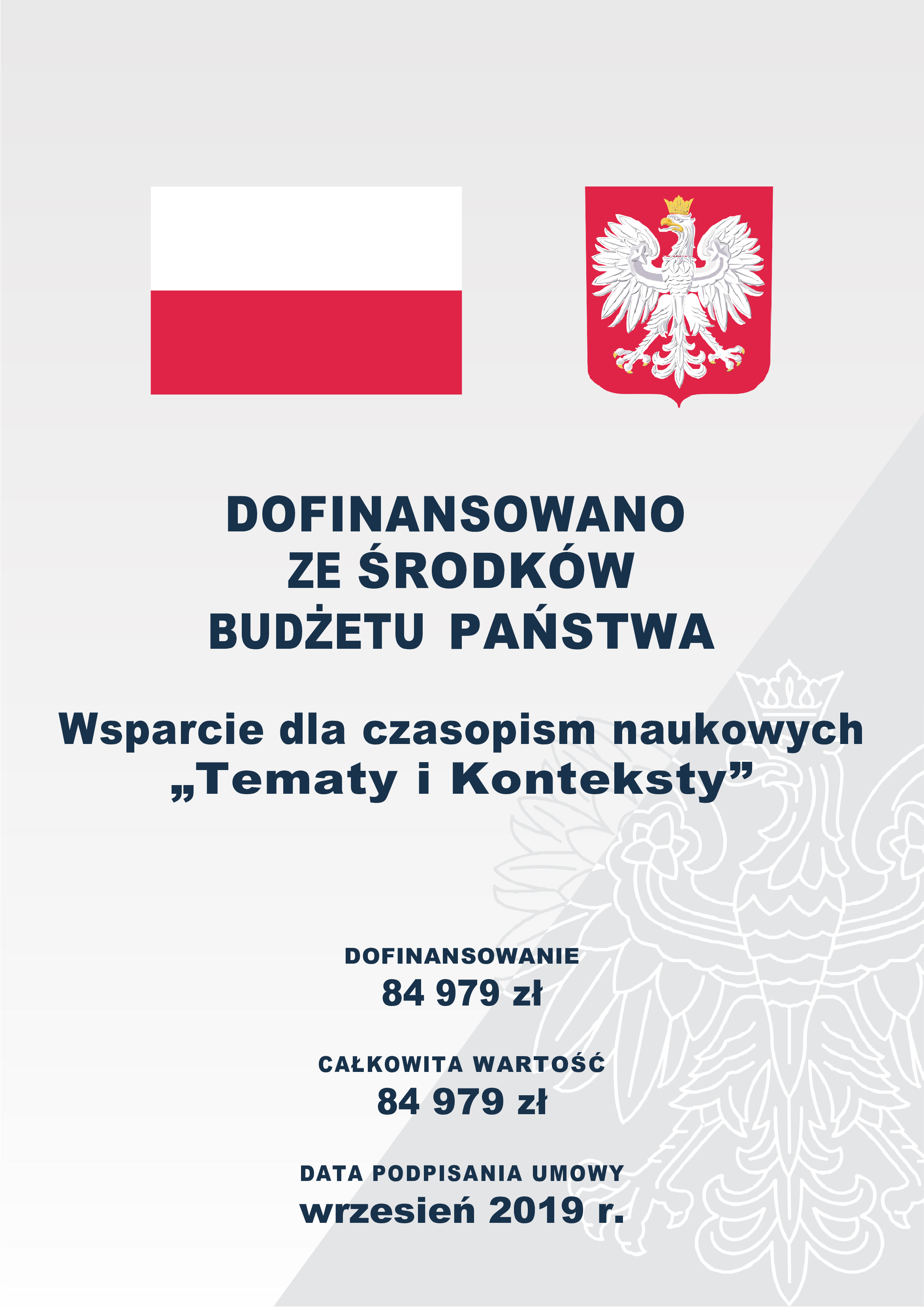Witold Bosonóg, or Polish [im]mature (im)maturity. Casus of identity structuration
DOI:
https://doi.org/10.15584/tik.2017.20Keywords:
Marcin Kromer, Kazimierz Brodziński, Johann Gotfried Herder, Witold Gombrowicz, Polish national identity, Jürgen Habermas, Anthony Giddens, social communication, structurationAbstract
Due to surprisingly different historical testimonies about Polish identity and character – Poles being astonishingly kind-hearted, naive and polite and at the same time quarrelsome and incapable of acting together – how should a peculiar weakness of Polish social existence leading to „ritual chaos” be understood? Gombrowicz in his ironic historical dramas – in Ślub (Wedding), in Historia (History), in Operetka (Operetta) – leads us to discovering mature immaturity understood much more widely than just criticism of Polish form or „trap” suggesting the possibility of critical but conscious accepting Polishness as a feeling of helplessness in the face of this world powers, a weak, unfinished and vague identity and at the same time showing unexpected benefit from this seemingly hopeless situation: Polish weakness, self-conscious, unassertive identity gives a chance to react more flexibly, maturely to revolutionary changes in contemporary world. Speaking the language of contemporary subjective sociology the Habermas vision of ideal community of communication is defeated by Anthony Giddens’s description of structuration in which true mechanisms of creating efficient collective identities can be seen.
Downloads
References
Adler E., Herder und die deutsche Aufklärung, Wien – Warszawa 1965.
Cieński M., Formacja oświeceniowa w literaturze Polski i Niemiec, „Wiedza o Kulturze” [Wrocław] 1992.
Czyżewski M., Kowalski S., Piotrowski A. (red.), Rytualny chaos. Studium dyskursu polskiego, Kraków 1997.
Garfinkel H., Studies in Ethnomethodology, Cambridge 1967.
Giddens A., Stanowienie społeczeństwa. Zarys teorii strukturacji, Poznań 2003.
Gombrowicz W., Iwona, księżniczka Burgunda. Ślub. Operetka. Historia, Kraków 1996.
Gombrowicz W., Dziennik, t. I i II: 1957–1961, Kraków 1997.
Gombrowicz W., Testament. Rozmowy z Dominique de Roux, Kraków 1996.
Habermas J., Kommunikatives Handel und detranscendentalisierte Vernunft, w: tegoż, Zwischen Naturalismus und Religion. Philosophische Aufsätze, Frankfurt 2005; Między naturalizmem a religią. Rozprawy filozoficzne, tłum. M. Pańków, Warszawa 2012.
Habermas J., Theorie des kommunikativen Handelns, t. 1 i 2, Frankfurt a. M. 1981; Racjonalność działania a racjonalność społeczna, tłum. A. M. Kaniowski, Warszawa 1999;
Przyczynek do krytyki rozumu funkcjonalnego, tłum. A. M. Kaniowski, Warszawa 2002.
Jeleński K. A., Od bosości do nagości. O nieznanej sztuce Witolda Gombrowicza, w: W. Gombrowicz, Iwona, księżniczka Burgunda. Ślub. Operetka. Historia, Kraków 1996; „Kultura” [Paryż] 1975, nr 10, s. 3–28.
Kromer M., Polonia czyli o położeniu, ludności, obyczajach, urzędach i sprawach publicznych królestwa polskiego księgi dwie, tłum. S. Kozikowski, Olsztyn 1977; Martini Cromeris Polonia, sive de situ, populis, moribus, magistratibus et Republica regni Polonici libri duo, 1578, wyd. dr Wiktor Czermak, Kraków 1901.
Downloads
Published
How to Cite
Issue
Section
License
Copyright (c) 2017 Tematy i Konteksty

This work is licensed under a Creative Commons Attribution-NonCommercial-NoDerivatives 4.0 International License.




